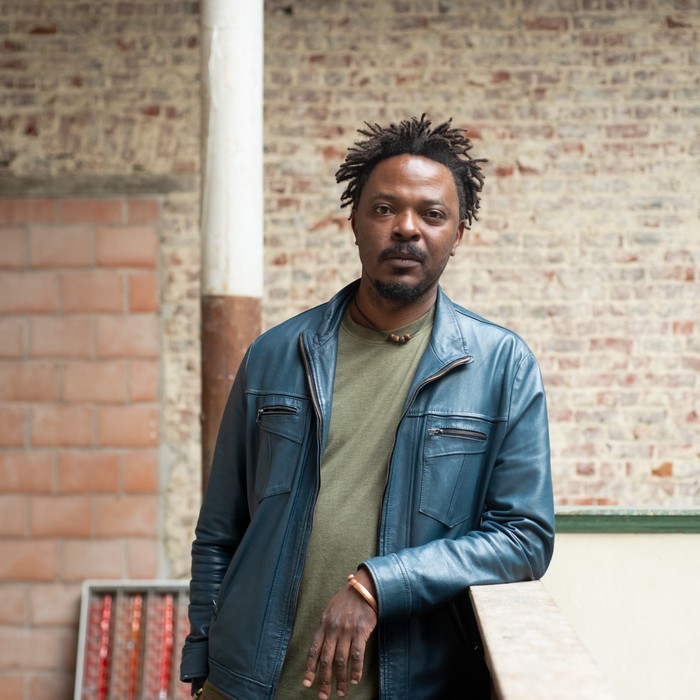
Visiting artist professor
2025 - 2026
Sammy Baloji
Born in 1978 in Lubumbashi (Congo - Brazzaville)
Since 2005, Sammy Baloji has been exploring the memory and history of the Democratic Republic of Congo. His work is an ongoing research on the cultural, architectural and industrial heritage of the Katanga region, as well as a questioning of the impact of Belgian colonization. His use of photographic archives allows him to manipulate time and space, comparing ancient colonial narratives with contemporary economic imperialism. His video works, installations and photographic series reveal the history of the present and highlight how identities are shaped, transformed, perverted, and reinvented. He produces the tangible presence of the past in order to identify and amplify what it holds for the future. His critical view of contemporary societies is a warning about how cultural clichés continue to shape collective memories and thus allow social and political power games to continue to dictate human behaviour.
As a multidisciplinary artist and filmmaker, Sammy Baloji is not interested in colonialism as nostalgia, or in it as a thing of the past, but in the continuation of that system. The questions "How do we integrate the colonial setting and its tools to go beyond them and to tell their story through all this knowledge that has not disappeared and has not been erased?" and "How can tradition and modernity be combined?" are central in Sammy Baloji's oeuvre to rethink and reconnect different territories and histories across the preand post-colonial eras.
Sammy Baloji has a predilection for urban planning, industrial heritage, maps, and archives, revealing their unspoken aspects and political and social dimensions. These are all disciplines that involve forms of material, ancestral knowledge, and silenced voices. By bringing the past into the present and by making these fragments of the past relevant today, Sammy Baloji gives depth to the present, allowing us to remove it from contingency and distinguish between the accidental and the memorable. He captures absence to transform the present.
A recurrent, underlying theme in Sammy Baloji's work spans over his interest in organic matter that Congo holds -such as uraniumwhich he sees as both a site of conflict and a repository of knowledge. In his reflections, the violence of the colonial system and the effects of deindustrialisation is seen as a moment of rupture and the beginning of the Anthropocene era: plants, soils, local populations and ecosystems were domesticated as a consequence of globalization and the effects of it are felt worldwide.
His work aims to give a different perspective of dominant narratives, which he subverts thanks to poetical interventions, provoking reflections rather than emotions, and brings in action ideal and moral vindications rather than superficially material ones. His perspective allows us to see strength in the ruins of modernity, and also challenges us to consider our civic responsibilities towards those who once built the infrastructures and cities we now inhabit, whether they are physical or conceptual.
Sammy Baloji is also one of the founding members of Collectif Picha, a cultural and artistic association based in Lubumbashi. Since 2008, the collective's activities consist of the dissemination and promotion of contemporary art through research, meetings and exchanges, artistic residencies, support for young artists' projects (Ateliers Picha) and the organization of the Lubumbashi Biennale.
